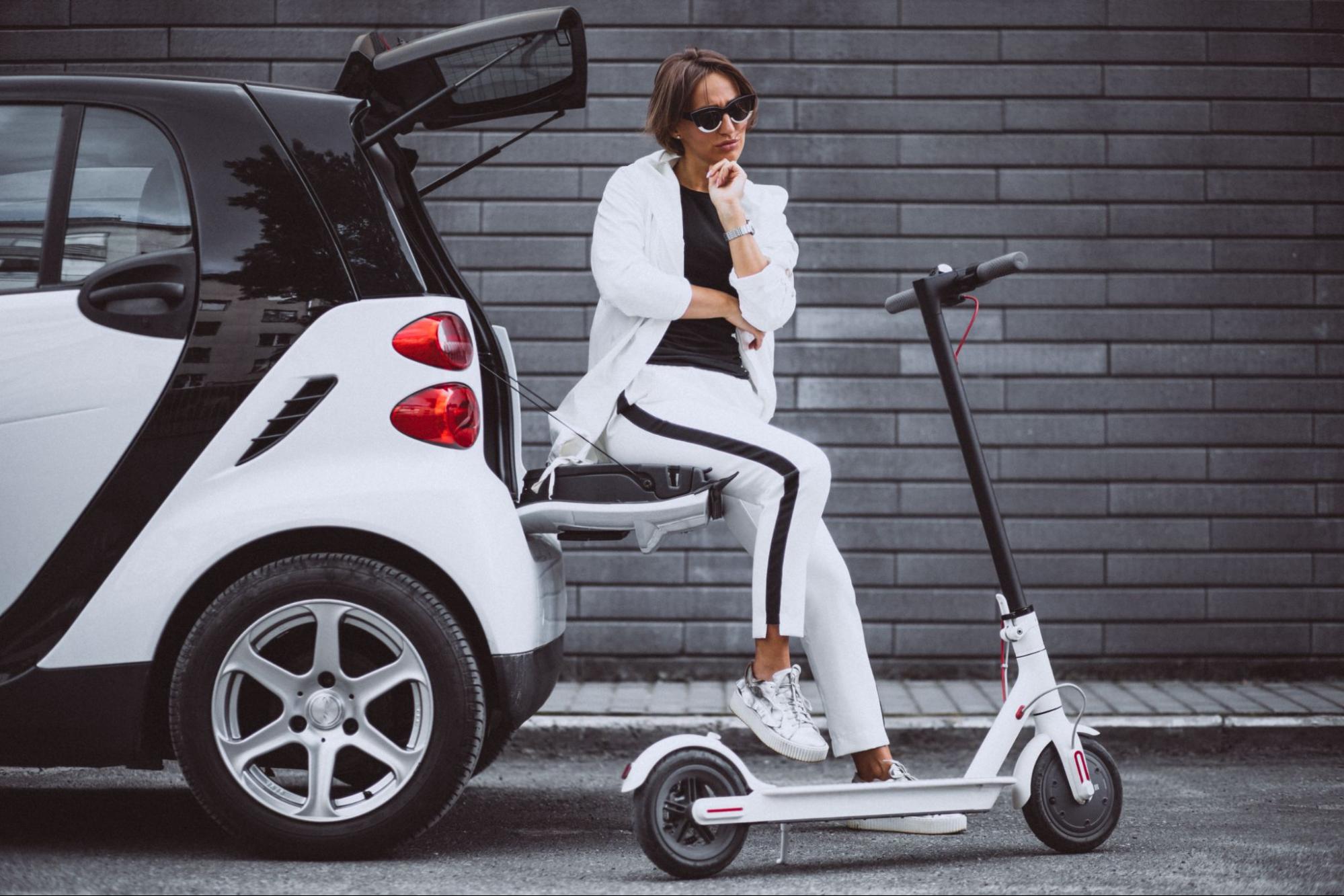Electric scooters are a fun way to get around and are great for the environment. Unfortunately, many people have the wrong idea about electric scooters and how they impact the environment.
Unlike other mechanical vehicles, these e-scooters do not emit harmful smoke. However, their making process could be harmful; we aren’t discussing that here.
Let’s take a look at some of the ways that these things can be good for our planet!
Electric scooters are more environmentally friendly than cars, buses, and bikes.
Electric scooters are more environmentally friendly than cars, buses, and bikes.
Cars: A typical car can emit 20 to 50 tons of carbon dioxide per year (CO2) if driven 12 miles daily on average. It is equal to the amount emitted by 7-10 people who live in an average home in America over an entire year. However, electric scooters only emit around 2 tons of CO2 annually because they don’t use fuel or have any moving parts!
Buses: The average bus emits 34% more carbon dioxide than a passenger car when it’s idling at a traffic light for two hours without moving! That means if you take a bus from New York City’s Grand Central Station down Broadway during rush hour traffic congestion — which lasts about six minutes — your journey will contribute almost as much pollution as driving there yourself!

Electric scooters are cheaper than owning a car
You can also save on gasoline by using an electric scooter. Gasoline costs $3.50 per gallon, and the average American spends more than 40 hours a year behind the wheel of their car, according to the U.S Department of Transportation (USDOT).
If you spend that same amount of time riding your electric scooter around town, it will cost less than one tank of gas per month – assuming you refuel at each charge point!
Electric scooters require less energy to charge than electric cars
Electric scooters require less energy to charge than electric cars.
Electric car charging stations are convenient but also take up space and can be expensive. In contrast, electric scooter chargers can be placed anywhere: on your driveway or in front of your house!
They’re also more affordable than installing an underground electrical grid for charging your vehicle. The main disadvantage is that you’ll need to find a way to charge up whenever you want fresh juice for those miles ahead.
However, there are several options available: solar power (elements), wind power (windmill), geothermal energy (hot springs)
Electric scooters are better for the environment than gas-powered scooters.
Gas-powered scooters are more environmentally friendly than electric scooters, but only in the short term.
Electric vehicles are cleaner than gas-powered ones because they don’t produce emissions or tailpipe pollution. However, there’s still some unavoidable environmental impact from their manufacturers and use.
And if you’re concerned about how your transportation choices affect the planet, it’s essential to consider all the options available before making a decision.
To start with, gas-powered scooters must be refueled with fuel every time they’re used, but not so much with electric models! Most people don’t know this factoid about electric vehicles (EVs).
Still, they know that EVs are generally cheaper than their gasoline counterparts because they’re powered by electricity instead of gasoline (or diesel). Electric cars also have fewer emissions because they don’t need fueling up as often.
However, if someone wants to drive around town without worrying about running out of juice due to heavy usage, then having an EV would probably make sense since there won’t be any downtime between charges either way!
E-scooters are hard to recycle and may end up in landfills.
One major drawback of e-scooters is that they’re hard to recycle. The batteries, motor, and frame are not recyclable materials, so you’ll have to take them to a recycling facility yourself.
If you live in an area with good recycling facilities (or if you can get away with putting them in a bin), this won’t be much of an issue, but it’s still worth considering when purchasing your electric scooter!

Electric scooters are greener than other options but still have environmental drawbacks
Electric scooters are a more environmentally friendly option than other modes of transportation. For example, an electric car requires more energy to charge than an electric scooter (although it doesn’t take long).
The same holds true for bicycles and buses — they need more power to operate than electric bikes or bikes with pedals, but they also produce fewer emissions.
Electric scooters have their drawbacks: they can be expensive to buy and maintain, and you plug them into an outlet every time you use them (which takes up valuable space).
However, if you need something that will get you around town quickly but won’t suck up too much energy, these might be worth considering as part of your transportation arsenal!
Electric scooters are an excellent way to travel short distances, but they aren’t the most environmentally friendly option. They cut down on transportation pollution and greenhouse gas by eliminating the need for car ownership and gas-powered vehicles.
However, electric scooters still have some issues regarding recycling because of their plastic wheels and battery packs. If you want to make your commute greener while simultaneously saving money, then an e-scooter may be just what you need!


